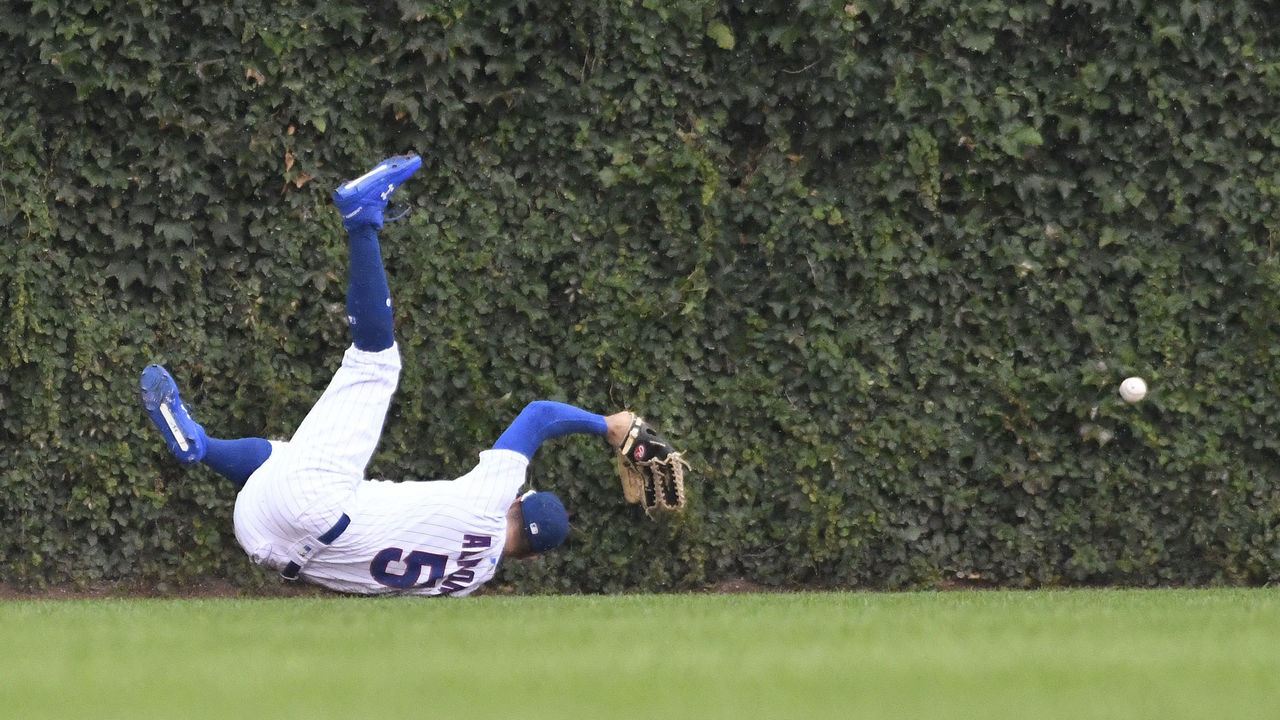The Cubs deserved better than this
There's nothing wrong, per se, with deep-dish pizza. By and large, pizza is incorruptible. It's pretty hard to make any combination of dough, tomato sauce, cheese, and cured meat unpalatable.
Tuck into a slice of deep-dish pie with your requisite fork and knife, however, and it's invariably ... underwhelming. The flavors are all there, but that unmistakable hell-yes-I'm-eating-pizza dopamine rush never comes. Moreover, you need to take a nap three bites in. It should be better than it is.
This seems to be something of a recurring theme in Chicago, the birthplace and mecca of this intractable cheese-and-dough monstrosity. Much like their city's signature culinary offering, the Cubs should be better than they are. They should, given the profound mediocrity of the National League Central this season, be a playoff team.
Following a disastrous weekend at Wrigley Field, however, that almost certainly won't happen. Handed an excruciating four-game sweep by the St. Louis Cardinals - who clinched a playoff berth Sunday to cap the carnage - Chicago has just a 2.1% chance of sneaking into the postseason, according to FanGraphs, as it sits four games back of the second NL wild-card spot with six games to go. Barring a miraculous finish, the Cubs - losers of six in a row - will miss the playoffs for the first time since 2014.
And, much like that proverbial second slice of deep dish, it doesn't quite sit right. Chicago is easily the most talented team in its division, having retained virtually every key member of last year's roster that finished 95-68 before fizzling out in the wild-card game. None of the Cubs' division rivals boast a core of young(ish), star-level position players who compare to Javier Baez, Kris Bryant, Anthony Rizzo, and Willson Contreras. This team's veteran-laden rotation ranked among the game's best a year ago. Meanwhile, in-season additions of Craig Kimbrel and Nicholas Castellanos only reinforced Chicago's on-paper edge, though the former didn't pan out nearly as well as the latter.
The game isn't played on paper, of course, but here's the thing: The Cubs have also objectively outperformed every other NL Central club in 2019, leading their division with a plus-111 run differential. (The Atlanta Braves, who just claimed their second straight NL East title and trail only the Los Angeles Dodgers for the league lead in wins, own a plus-113 run differential.)
Offensively, thanks to resurgences from Rizzo and Contreras, along with the acquisition of Castellanos, the Cubs have been one of the best run-scoring teams in the league, let alone in their division, sitting among the top five in the NL in runs per game (5.06), OPS (.786), isolated power (.201), and wRC+ (102).
Their pitchers have excelled, too, ranking top five in runs against per game (4.35), ERA (4.03), and fielding independent pitching (4.24). The only team in the Cubs' division that has more effectively kept runs off the board is the Cardinals, who also happen to be their only division rival with a positive run differential. An objective assessment very much leads to the conclusion that Chicago is a good baseball team.
The Cubs' record suggests otherwise, however, in the wake of four straight one-run losses, which means this season amounts to a failure that isn't easily remedied. How do you fix a team that did almost everything right except win baseball games? Take the lineup, for example, which is replete with good hitters and will remain so in 2020. (Castellanos and Ben Zobrist are the only everyday players who will hit free agency this winter.) Again, the Cubs outhit almost every other NL team this season, but they just couldn't buy a timely hit once the calendar flipped to September, putting up a .205 average - with a 74 wRC+ - in high-leverage situations this month. There's no solution for that.

Sure, the bullpen, a constant source of frustration this year, could probably use some sprucing up this winter, but it's not like the Cubs weren't responsive to that issue in 2019. They signed Kimbrel - the best reliever of his generation - to an extremely friendly long-term deal in June, but he proceeded to stumble through the first bad season of his career.
In spite of that, Chicago's relief corps was far from abominable, posting the third-lowest ERA (3.89) in the NL, with a better FIP (4.44) than the Braves and Washington Nationals. The point is that even the Cubs' weaknesses weren't that weak, as randomness/bad luck factored just as heavily into their abysmal 19-27 record in one-run games as their unspectacular bullpen did.
In any event, someone will be held accountable for the club's meltdown, and it will almost certainly be manager Joe Maddon, whose five-year contract expires at season's end. Whether Maddon deserves to be retained or not is debatable, but bringing in a new bench boss will undoubtedly mollify frustrated fans more effectively than having president of baseball operations Theo Epstein throw up his hands and proclaim, "Sometimes, you do everything right and lose."
Indeed, outside of retaining Addison Russell, the Cubs made all the right moves. They just didn't win, amounting to less than the sum of their parts. The manager usually foots the bill when that happens.
No matter who's at the helm next year, the outlook is bright. Hopefully, the disappointment of 2019 - and the team's first October on the couch in a half-decade - won't leave the front office scrambling for solutions to problems that don't exist. The Cubs still have the ingredients to make a damn fine pizza.
Jonah Birenbaum is theScore's senior MLB writer. He steams a good ham. You can find him on Twitter @birenball.